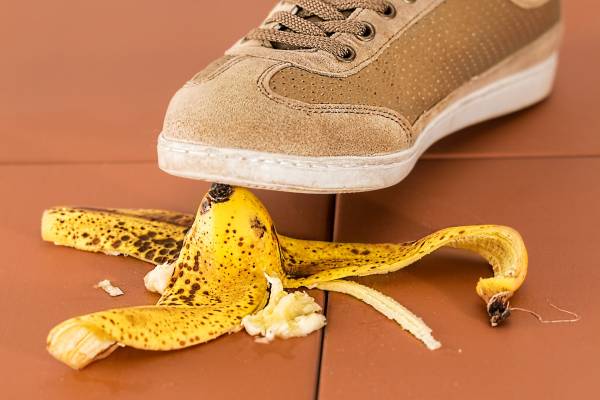Slip And Fall Lawsuits

Slip and fall accidents are part of the broader category of premises liability because they tend to occur on someone else’s property as a result of their negligence. The property owner may then be liable for that person’s injury. Such accidents can happen indoors as well as outdoors. Outdoor cases might be caused by ice, rain, snow or other hazards while injuries sustained indoors might be due to a number of hazardous conditions including bad lighting, wet floors or other unattended maintenance issues.
If you have been injured on someone else’s property and feel you are not at fault for your own injuries, your main task in filing a claim will be proving fault. Here is a simple guide to how fault is determined by the law and the court:
PROVING FAULT
Unfortunately, there is no clean cut method of determining who is at fault for injuries sustained due to hazardous conditions. Instead, the law is applied on a case by case basis. In doing so, the main question that must be addressed is whether or not the property owner or other liable party acted carelessly with their maintenance and management of the property.
Along with determining the level of care given by the owner, you must be able to prove that your accident was indeed related to a dangerous condition on that property and that this dangerous condition was not something a reasonable person could anticipate or protect themselves from in the circumstances. If your injury was caused by something that would be deemed an obvious danger, then the property owner cannot be held liable. If the hazardous condition was not something you should have reasonably been wary of, you must then be able to prove that the property owner was aware of the dangerous condition and made no attempt to fix it.
There are three ways of determining that the property owner was aware of the condition:
- They actually created the condition in the first place
- They were aware of the condition and failed to correct it
- The condition has been around so long that they should have known about it and had time to address it
In the last scenario, things are less clear-cut because the phrase “should have known” leaves things fairly open ended. If your case involves this sort of situation, liability will have to be decided simply by common sense. The court will have to decide if it believes the property owner took reasonable measures to ensure the safety of patrons on their property.
There are many cases, however, where there are no responsible parties other than the injured person. Without a responsible party to accuse, no damages may be recovered. If you are injured on a commercial property, the owner of the store, restaurant or other business may be held liable. If you are injured on a residential property, then the landlord may be held liable. If you are injured on government property, special rules may shield them from being held liable.
